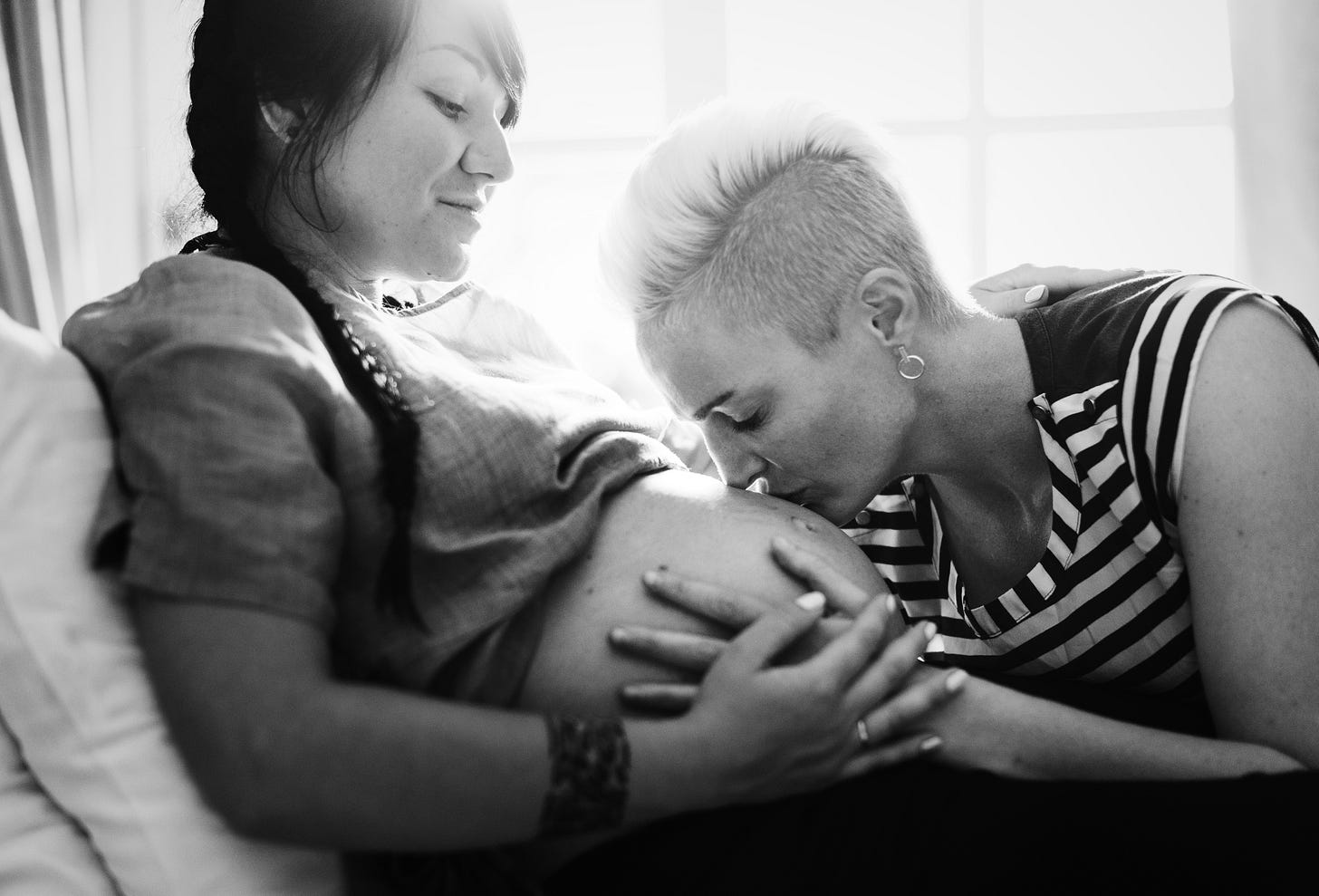What’s the Research?
Welcome to CPMHT on Substack! If you’re just discovering us, we’re excited to have you here. While we’re new to this platform, we have been sharing breakdowns of perinatal mental health research for years. We’re thrilled to have a new space for our work, and we’re glad to have you with us!
To kick things off, we will take a look at some recent research on breastfeeding. However, let’s be clear: this is research, not a recommendation. Breastfeeding is just one aspect of the perinatal mental health landscape, and it’s not a requirement for supporting a parent’s well-being.
When birth trauma is part of the story, the conversation should not start with whether or not a parent breastfeeds/chestfeeds. Instead, we should ask: how do we build systems that reduce birth trauma in the first place? The burden should not fall on the parent, who may be recovering from trauma while caring for a newborn, to fix a broken system.
What we need is trauma-informed care: a system where healthcare providers understand the impact of trauma and offer care that is collaborative, culturally responsive, and rooted in informed consent. This system should center on the parents’ right to choose and exercise control while ensuring respectful and continuous support.
Let’s dive in:
The Positive Cycle of Breastfeeding, Mental Health Outcomes of Breastfeeding Mothers Following Birth Trauma
Wheeler, A., Sweeting, F., Mayers, A., Brown, A., & Farrington, S. (2025, March). The Positive Cycle of Breastfeeding—Mental Health Outcomes of Breastfeeding Mothers Following Birth Trauma. In Healthcare (Vol. 13, No. 6, p. 672). MDPI.
What was the study trying to learn?
The study aimed to investigate the relationship between breastfeeding experiences and the mental health outcomes of mothers who have experienced birth trauma. While it is well established that both childbirth and early infant feeding can significantly influence maternal well-being, there has been limited research on how these two experiences interact, especially when childbirth is traumatic.
The researchers sought to determine whether breastfeeding could serve as a protective factor that supports maternal mental health following a traumatic birth, or, conversely, whether difficulties with breastfeeding might exacerbate the emotional and psychological distress caused by that trauma. By exploring mothers' accounts, the study aimed to uncover how breastfeeding, whether perceived positively, neutrally, or negatively, shaped their emotional recovery and connection with their infants. The broader goal was to identify opportunities for improved postnatal support that addresses both feeding challenges and the lingering effects of traumatic birth experiences.
What did they do to explore this?
To investigate the connection between breastfeeding experiences and maternal mental health after birth trauma, researchers conducted a cross-sectional online survey. The survey was completed by 501 mothers who had given birth, with 159 of them (32%) identifying as having experienced a traumatic birth. Participants provided information about their childbirth and breastfeeding experiences and their emotional responses to these events. The survey included both quantitative and qualitative components, enabling statistical analysis and an in-depth exploration of personal narratives.
For the qualitative data analysis, researchers employed thematic analysis. This analysis aimed to capture the emotional tone of the participants’ accounts, the language they used to describe their experiences, and how breastfeeding either supported or challenged their psychological recovery following birth. This mixed-methods approach allowed the researchers to identify not only general trends but also the nuanced ways in which breastfeeding influenced mothers' emotional journeys after trauma.
What did they find in the exploration?
The study found that breastfeeding experiences significantly influenced the mental health of mothers who had experienced birth trauma, acting as either a source of healing or a cause of further distress. Mothers who had positive breastfeeding experiences, where breastfeeding was successful, emotionally rewarding, and well-supported, often described it as a way to reclaim their bodies, bond with their babies, and restore a sense of agency and confidence that had been lost during the traumatic birth. For these women, breastfeeding became part of a “positive cycle,” contributing to emotional resilience and mental well-being.
In contrast, mothers who faced difficulties with breastfeeding, such as pain, exhaustion, feelings of failure, lack of support, or low milk supply, reported that these challenges intensified their emotional suffering and reinforced the trauma of their birth experience. For some, unsuccessful or distressing breastfeeding experiences led to feelings of guilt, inadequacy, and further disconnection from their infants, which negatively impacted their mental health.
What conclusions can be drawn from this?
Overall, the study highlighted that breastfeeding is not a neutral experience for mothers who have gone through traumatic births; instead, it plays a powerful role in shaping their emotional recovery. These findings emphasize the importance of targeted support for breastfeeding in the context of birth trauma, acknowledging how deeply intertwined these experiences are for many women.
Positive breastfeeding experiences can significantly support maternal mental health by helping women heal emotionally, build confidence, and strengthen their bond with their infants. In these situations, breastfeeding serves as a restorative process, providing a sense of control and connection that may have been lost during a traumatic birth.
On the other hand, negative or distressing breastfeeding experiences can exacerbate the psychological effects of birth trauma. When mothers face challenges such as pain, exhaustion, or lack of support while breastfeeding, these struggles can reinforce feelings of failure, guilt, and disempowerment, further compounding the emotional distress caused by the birth itself.
Ultimately, the study concludes that breastfeeding has a significant and complex role in the emotional recovery of mothers. The findings underscore the importance of trauma-informed postpartum care that acknowledges the emotional significance of both birth and infant feeding experiences. Healthcare providers should be prepared to offer empathetic, individualized support for breastfeeding, particularly to those recovering from traumatic births. By doing so, there is potential to improve maternal mental health outcomes and promote healing during the crucial postnatal period.




